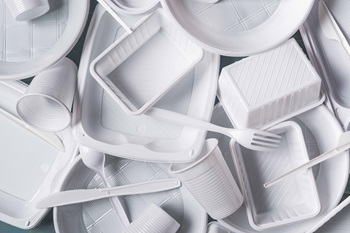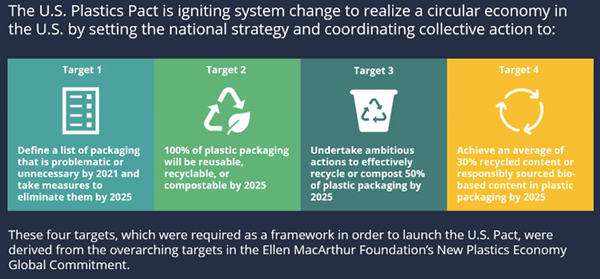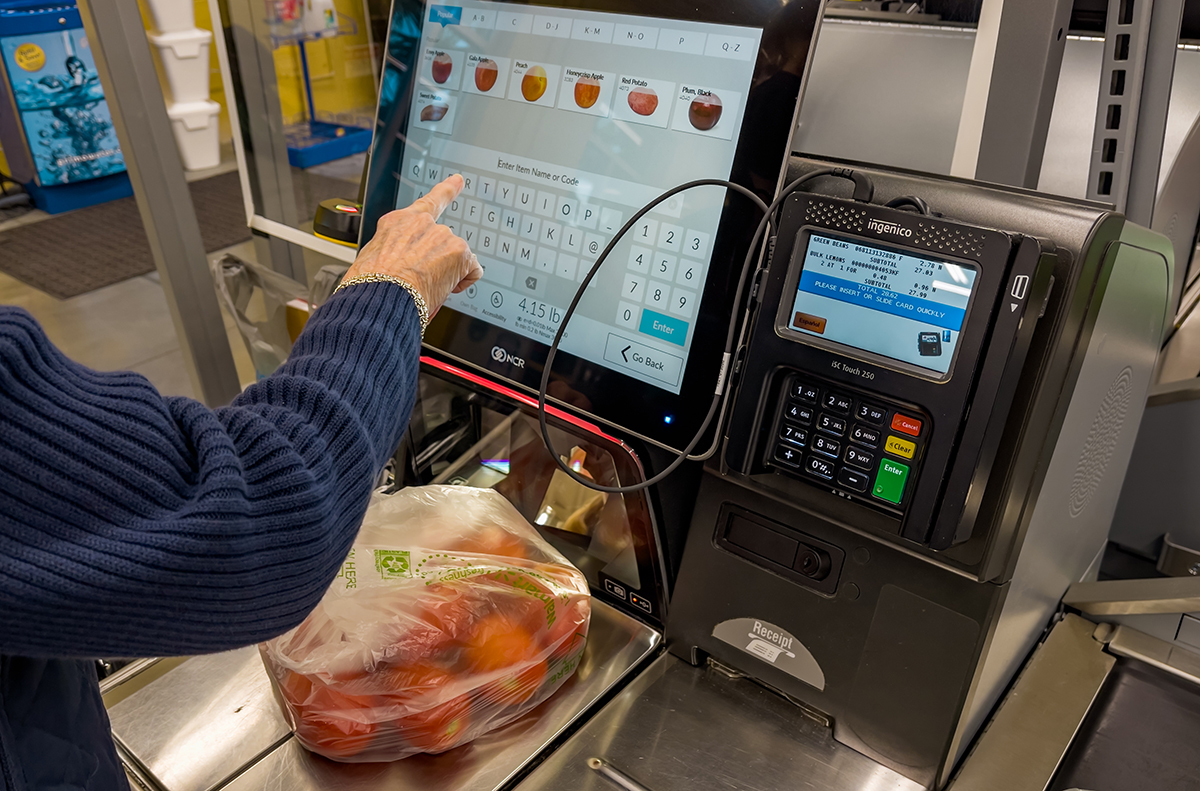By Andy Harig, Vice President, Tax, Trade, Sustainability & Policy Development, FMI

The plastic coffee stir stick. To me, it’s synonymous with the breakroom or waiting for an oil change at the car dealership. There’s something about it that serves as a symbol of utility – as well as equal distribution of sugar to beverage – but how necessary is this unpretentious tool? And when you take a step back, how much of a problem does its disposal pose in our supply chain?
Over the last year, stirrers that are non-reusable, non-recyclable and non-compostable were deemed as one of 11 items in a list of “problematic and unnecessary materials” by the U.S. Plastics Pact. FMI and more than 100 other organizations on the U.S. Plastics Pact identified materials that are not projected to be kept in a closed loop in practice and at scale by 2025.
The U.S. Plastics Pact released its list of “Problematic and Unnecessary Materials” on January 25. During a public webinar following the announcement, Emily Tipaldo, the U.S. Plastics Pact’s executive director, shared the background of the Pact’s efforts as context for the list and described the process undertaken within the Pact to date.
Background:
The U.S Plastics Pact was formed to support a circular economy for plastic packaging, aligned with the Ellen MacArthur Foundation’s vision and outline for a shift from a ‘take-make-waste’ approach to materials management toward a ‘circular’ approach that keeps materials in the system through connected and compatible systems of reuse, recycling and compost-ability. The U.S. Pact began with over 60 ‘Activators’ of corporate and not-for-profit groups – including FMI - committed to the vision of this circular economy for plastics packaging and willing to report annually on progress toward four ambitious targets:

Membership (Activators):
Today, the Pact has grown to more than 100 organizations representing organizations across the value chain, from private companies engaged in resin converting and thermoplastic molding to consumer goods manufacturing to material recovery facility operators to recyclers through to city and state governments, sector and industry associations. Each organization has voluntarily committed to progress and measurable action toward these four targets. Although there is a small group within the Pact focused on policy awareness and coordination, the Pact does not lobby.
How were Problematic and Unnecessary Materials Determined?
The “Problematic and Unnecessary Materials” workstream developed criteria and definitions for review by the larger Activator group. Once approved, the workstream members evaluated public information, created a list of a wide variety of materials and assessed each one against the criteria. The Activators performed additional review and evaluation before publishing the list. The Pact has added another list of materials / items to a ‘watch’ list for future evaluation in 2023.
Progress to date:
Between formation in August 2019 and January 2022, the Pact has developed a Roadmap for Action, determined Scope and Definitions, and defined a list of Problematic and Unnecessary Materials to be redeveloped or eliminated by 2025.
What’s Next for the U.S. Plastics Pact?
The first year’s Baseline Report (2020) will be released in March. Activators with quantitative data reported through a tool created by World Wildlife Fund called ReSource Plastic. FMI also submitted qualitative ‘data’ for the first baseline report reflecting activities in 2020, including the association’s initiatives, such as hosting a zero-waste luncheon with our partner Unilever at our signature event, Midwinter Executive Conference, in 2020.
FMI will soon receive a request to complete another year-end report for 2021. In 2021, we released the results of a 2020 survey on plastic film collection, and we developed and published an industry Sustainable Packaging Playbook.
The Pact continues to demonstrate that as a collective, what might seem like an insignificant change – such as label constructions that include adhesives, inks and materials like PETG – can make a big difference for our world.


 Industry Topics address your specific area of expertise with resources, reports, events and more.
Industry Topics address your specific area of expertise with resources, reports, events and more.
 Our Research covers consumer behavior and retail operation benchmarks so you can make informed business decisions.
Our Research covers consumer behavior and retail operation benchmarks so you can make informed business decisions.
 Events and Education including online and in-person help you advance your food retail career.
Events and Education including online and in-person help you advance your food retail career.
 Food Safety training, resources and guidance that help you create a company food safety culture.
Food Safety training, resources and guidance that help you create a company food safety culture.
 Government Affairs work — federal and state — on the latest food industry policy, regulatory and legislative issues.
Government Affairs work — federal and state — on the latest food industry policy, regulatory and legislative issues.
 Get Involved. From industry awards to newsletters and committees, these resources help you take advantage of your membership.
Get Involved. From industry awards to newsletters and committees, these resources help you take advantage of your membership.
 Best practices, guidance documents, infographics, signage and more for the food industry on the COVID-19 pandemic.
Best practices, guidance documents, infographics, signage and more for the food industry on the COVID-19 pandemic.
